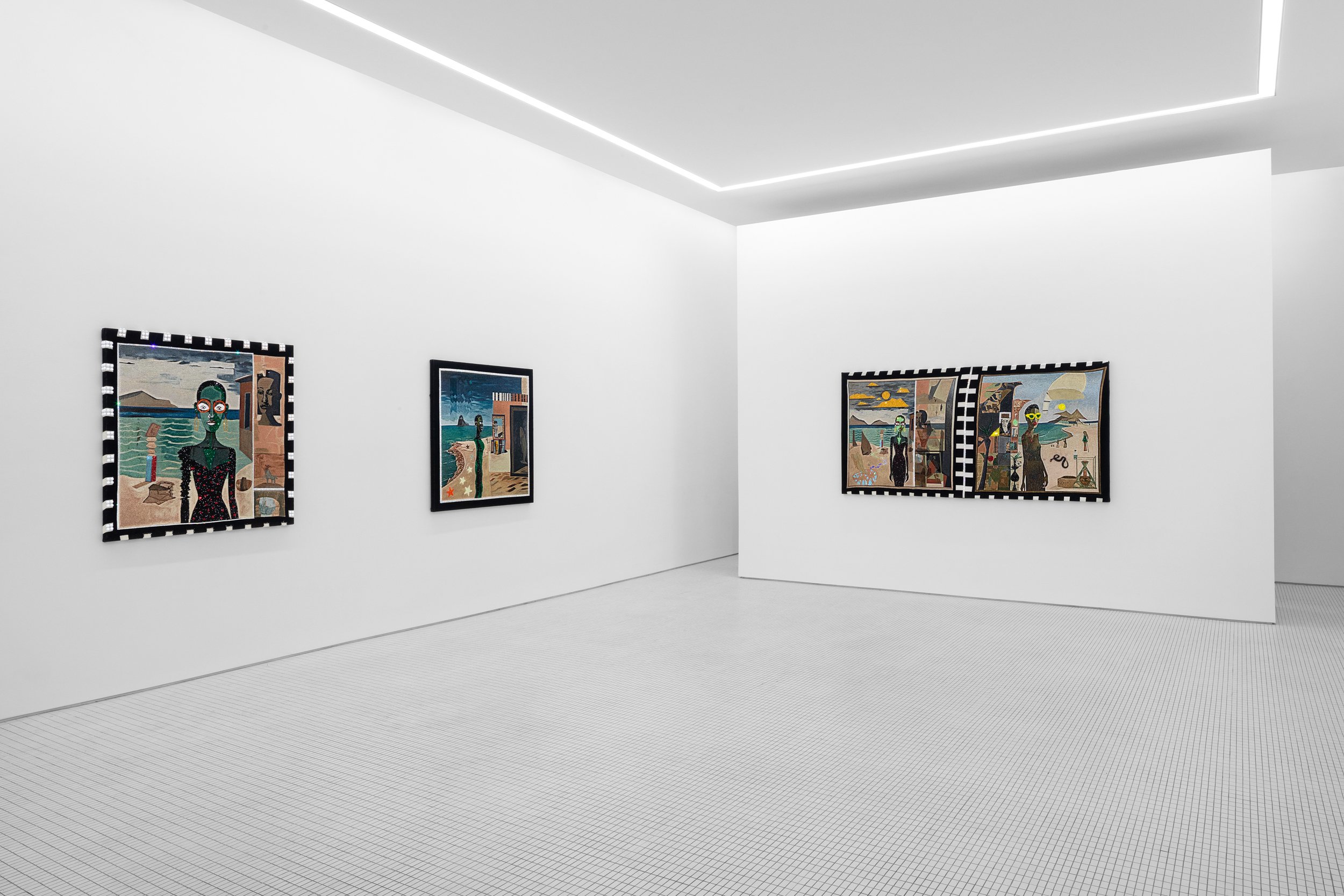Solo Show ‘Trying to Remember’ opens at Library Street Collective
The time has finally come! I’m excited to share my first solo show in Detroit, at Library Street Collective. My exhibition, titled Trying to Remember, is on view November 17, 2023 through January 6, 2024 at Library Street Collective. To read the overview of the show, read below. To view more images of the work, click here.
Library Street Collective is pleased to present a solo exhibition with Akea Brionne, titled Trying to Remember and opening November 17th, 2023. Brionne is an interdisciplinary researcher and artist whose practice explores the relationship between history and contemporary society. Working in lens-based media and textiles, her work analyzes the impact of colonial systems on cultural storytelling, memory, assimilation and the African Diaspora primarily with American and Caribbean society.
Expanding Brionne’s studies within Afro Surrealism, Trying to Remember explores the artist’s relationship to the loss of ancestral knowledge, and understanding one’s self through cultural awareness that has been deeply severed by colonial expansion and domination. She is illustrating moments of trying to “remember” through symbols and gestures that allude to folklore, mythology and biblical references. The work exists in a place that mimics our world, but includes moments that allude to the possibility of another dimension, possibly within the artist’s dreams. Through memory, she works to process her family’s migratory patterns, from Belize to Honduras to New Orleans. Water is a significant symbol she pulls from these contemplations—the element visually strewn and repeated throughout the textiles’ compositions—in reference to Hurricane Katrina, one of the most significant atrocities to affect Brionne and her family’s dissipation. While water represents a destructive force in the artist’s life, pearls, precious gems from the ocean, are embellished to counter such adversity in an optimistic acknowledgment of the beauty that can fructify in the face of tragedy.
Brionne's exploration of memory further serves as a mechanism in assessing how her formative years have shaped her self-awareness. Living and creating in a space that is distant from her family and the fragmented geographical zones that they inhabit, the artist confronts the duality of withholding inherited value systems while nurturing an independent identity. This inner conflict manifests itself in Brionne’s work through scenes fabricated to be both familiar and foreign. Raised in a religious household, the artist grapples with the indoctrination she experienced growing up, shielding her from various cultural aspects of life such as music, film, fashion and social movements; many of the symbols that Brionne weaves into her textiles are testaments to such. In The Paradox of Eve, for example, the foregrounded figure clutches an apple, the fruit a direct reference to Adam and Eve. The tale was one of the earliest stories Brionne was told, and she recalls the fear it instilled in her regarding decision making, particularly as a woman. With age and through her work, Brionne carves room to question these morals and process her sense of self.
While Brionne maintains an ongoing dialogue with her ancestors by decontextualizing images sourced from her family’s archive, this recent body of work reflects a burgeoning interest in engaging with historical movements in painting. Traces of Cubism are apparent in the geometric, fragmented structures of her figures and scenes, citing Diego Rivera as a stylistic influence in this regard. Further, akin to the approach of American artist William H. Johnson, Brionne looks to African sculpture and African American models to inspire her subject matter. Despite these painterly influences, Brionne anchors her creations in the lens-based foundation of her practice through the intentionally crafted borders that serve as frames in activating each image she composes.
